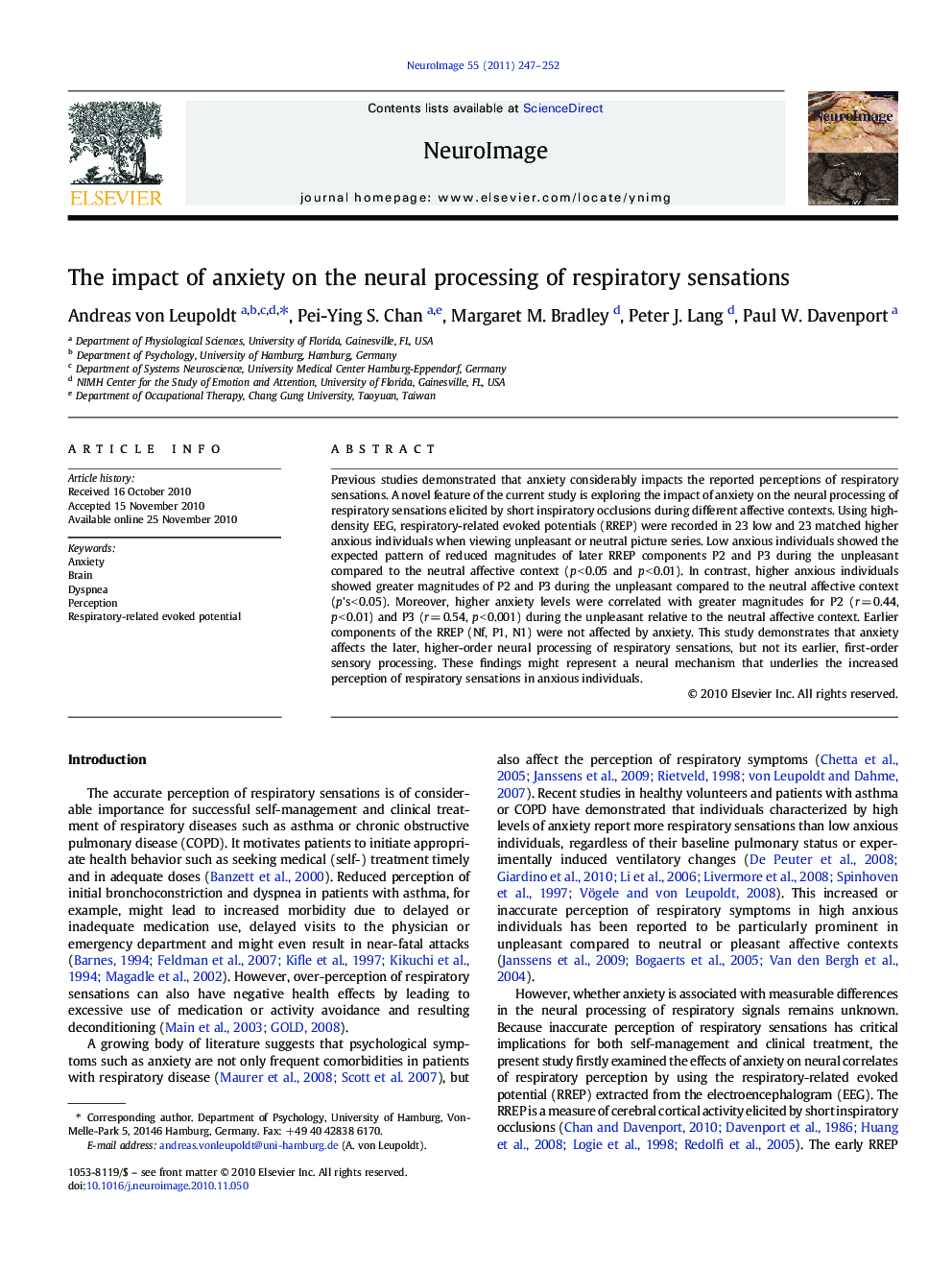| Article ID | Journal | Published Year | Pages | File Type |
|---|---|---|---|---|
| 6034577 | NeuroImage | 2011 | 6 Pages |
Previous studies demonstrated that anxiety considerably impacts the reported perceptions of respiratory sensations. A novel feature of the current study is exploring the impact of anxiety on the neural processing of respiratory sensations elicited by short inspiratory occlusions during different affective contexts. Using high-density EEG, respiratory-related evoked potentials (RREP) were recorded in 23 low and 23 matched higher anxious individuals when viewing unpleasant or neutral picture series. Low anxious individuals showed the expected pattern of reduced magnitudes of later RREP components P2 and P3 during the unpleasant compared to the neutral affective context (p < 0.05 and p < 0.01). In contrast, higher anxious individuals showed greater magnitudes of P2 and P3 during the unpleasant compared to the neutral affective context (p's < 0.05). Moreover, higher anxiety levels were correlated with greater magnitudes for P2 (r = 0.44, p < 0.01) and P3 (r = 0.54, p < 0.001) during the unpleasant relative to the neutral affective context. Earlier components of the RREP (Nf, P1, N1) were not affected by anxiety. This study demonstrates that anxiety affects the later, higher-order neural processing of respiratory sensations, but not its earlier, first-order sensory processing. These findings might represent a neural mechanism that underlies the increased perception of respiratory sensations in anxious individuals.
Research Highlights⺠Low anxious subjects show reduced P2, P3 in unpleasant vs. neutral affective context. ⺠High anxious subjects show greater P2, P3 in unpleasant vs. neutral affective context. ⺠Anxiety level correlates with magnitudes for P2 and P3. ⺠Anxiety affects higher-order neural processing of respiratory sensations.
